The Science of Chill 💫 Why Vacuum-Insulated Tumblers Keep Drinks Dreamy-Cold
Curious how your bottle keeps iced water cold for hours? Here’s the cute, science-backed guide—plus hydration tips and links to shop our 22oz Dreamscape and 40oz collections.

Minimal look, maximum mood
Handle-free silhouette, soft-matte touch, and modern colours that match your vibe—then insulation that actually performs.

How vacuum insulation works
Two walls with a near-vacuum between them greatly reduce conduction and convection of heat; many bottles also use reflective layers to reduce radiation. That’s why temperature changes so slowly.
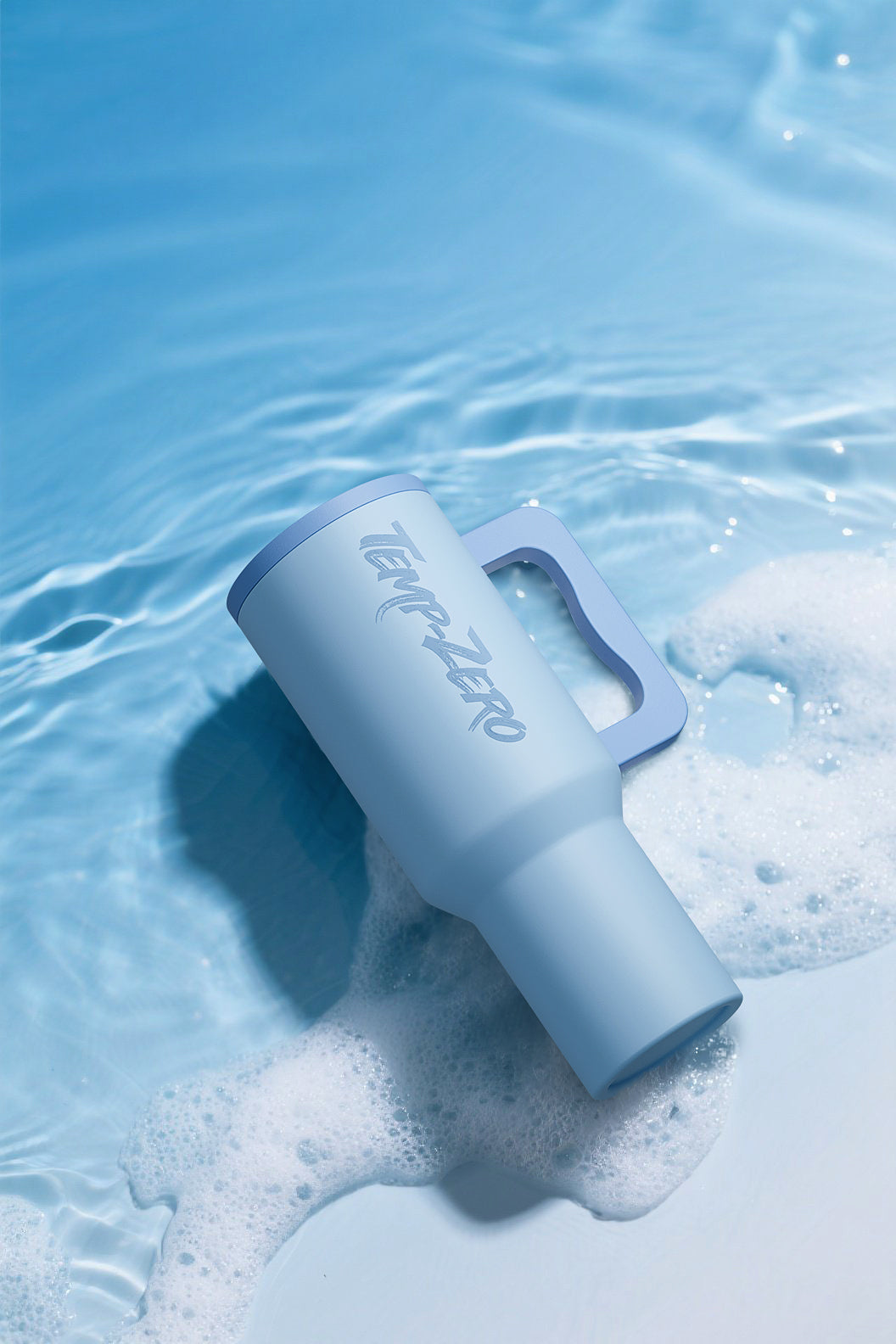
Why 18/8 stainless steel?
18/8 (Type 304) stainless steel—about 18% chromium and 8% nickel—is the classic food-contact grade for durability and corrosion resistance.
Clean sipping: Our contact parts are BPA-free. Food Standards Australia New Zealand reports Australian dietary BPA exposure is low and within safe limits.
Hydration, simplified
Health authorities say the basics don’t change: stay cool and drink water regularly, especially in hot conditions, rather than waiting to feel thirsty.
- Carry a filled bottle and sip steadily through the day; adjust intake for heat and activity.
- For long, sweaty sessions, consider electrolytes; otherwise water is usually enough.
What people look for in a bottle (useful search phrases)
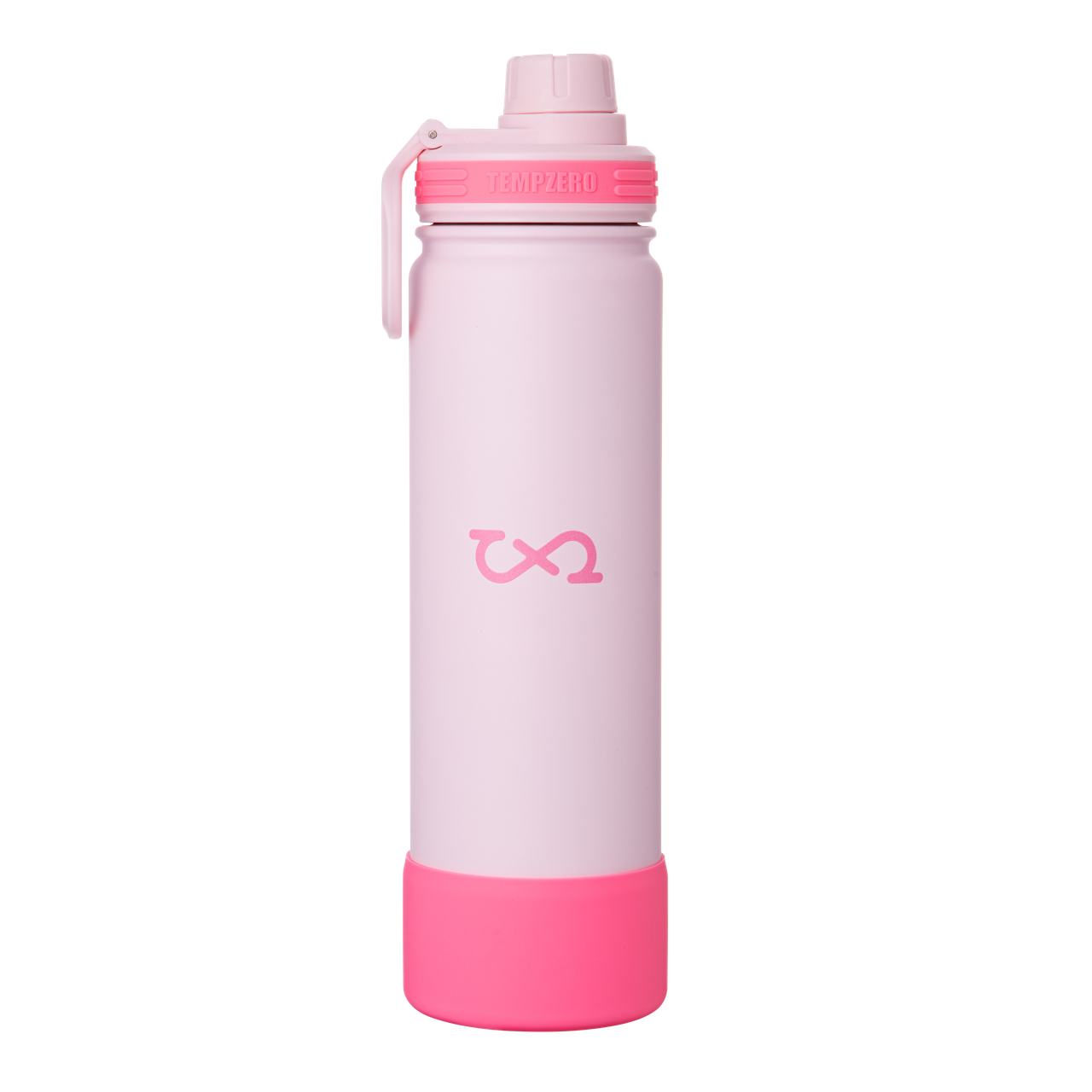
Blush Bloom
Soft pink and softly powerful—pairs with notebooks, playlists, and pretty much every outfit.
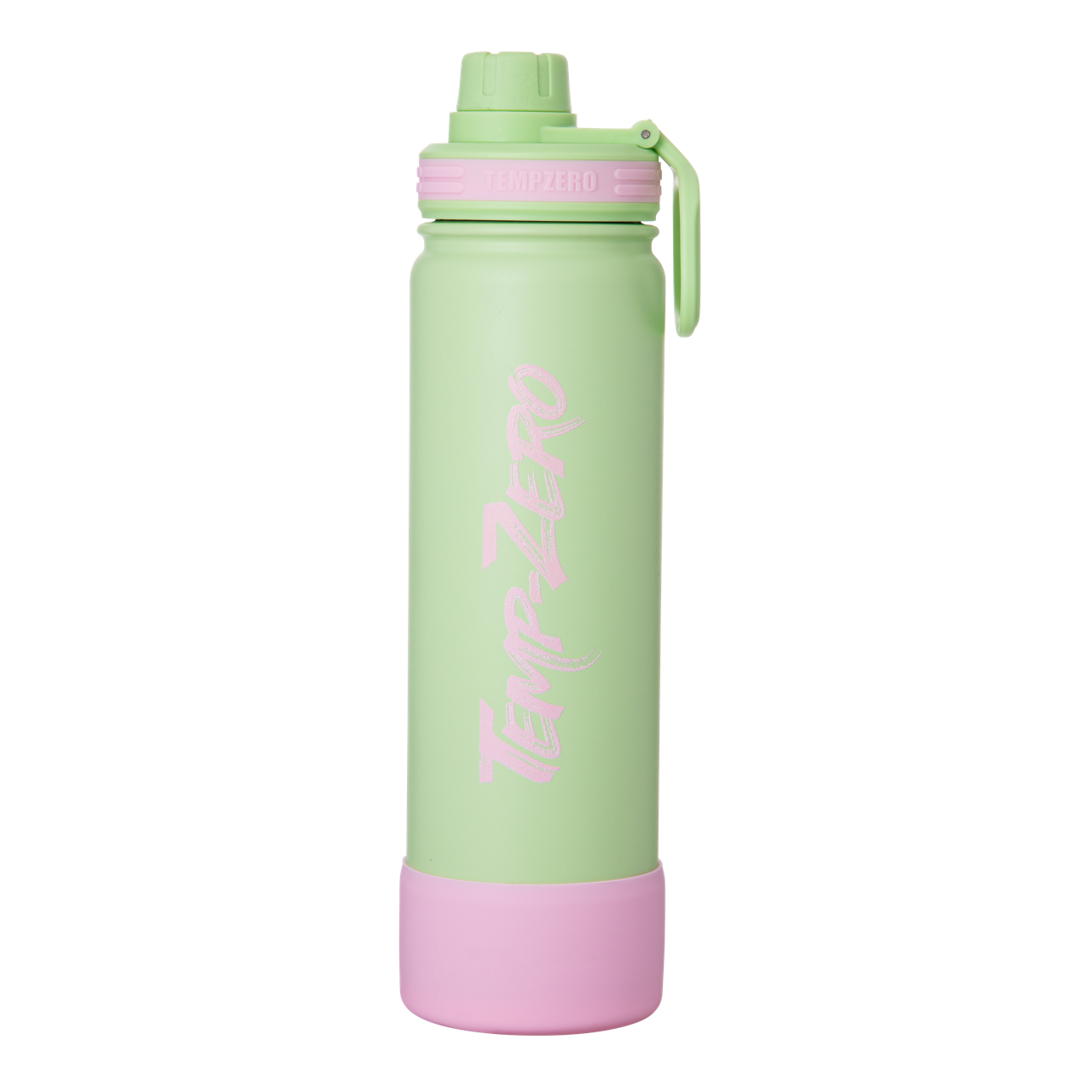
Spring Meadow
Fresh green for gentle starts. Studio days, library days, reset days.
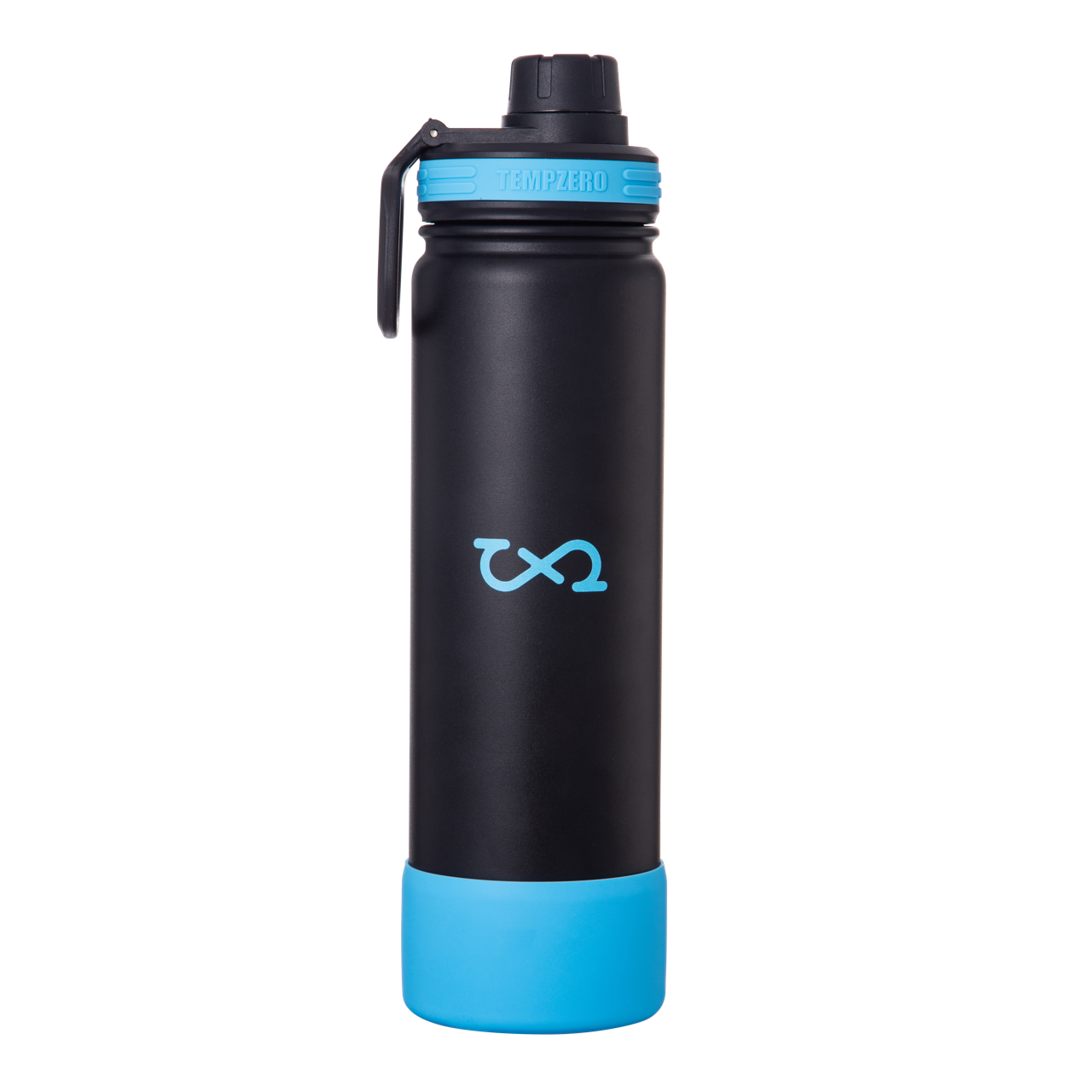
Midnight
Minimal and effortless—clean lines, maximum mood.
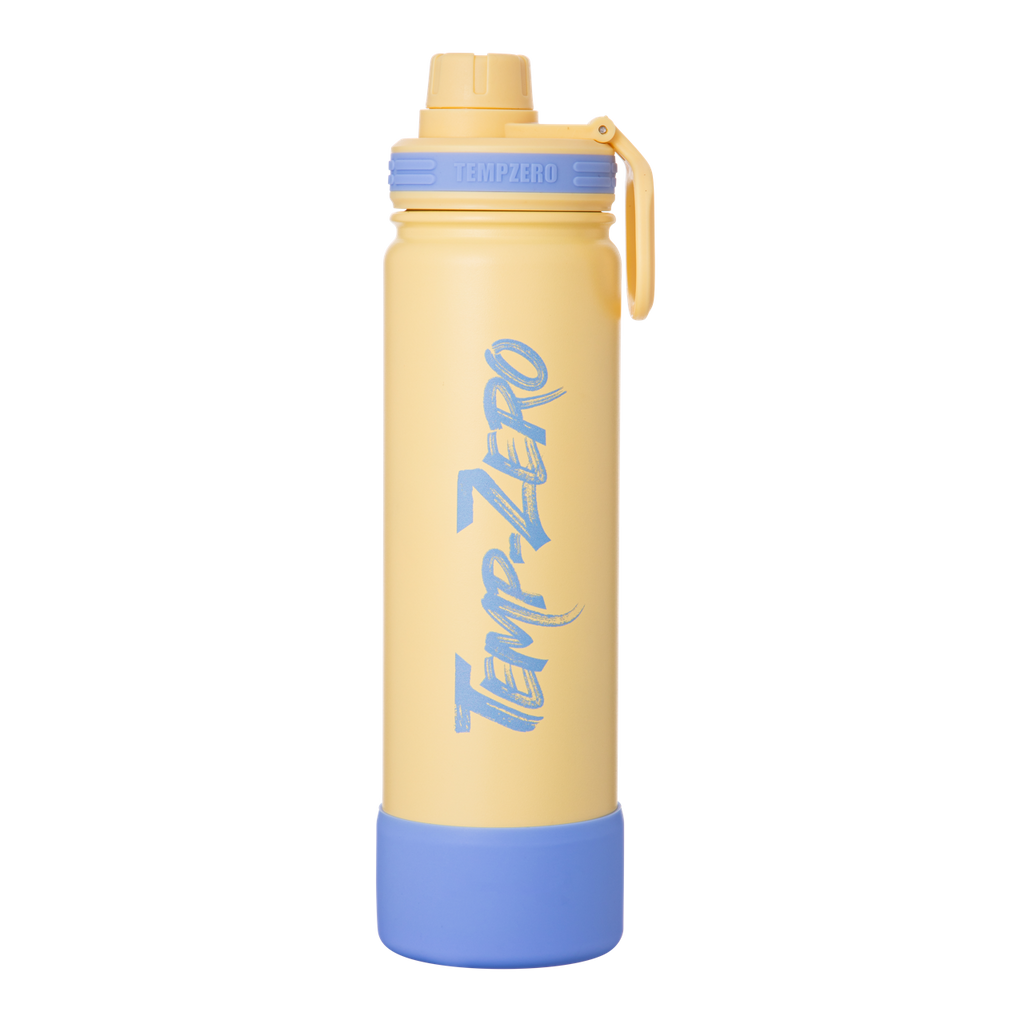
Sunny Butter
Warm golden energy for coffee walks and weekend markets.
Does vacuum insulation really stop heat?
It can’t stop heat entirely, but the evacuated space removes most air, dramatically reducing conduction and convection; reflective layers reduce radiation.
Is 18/8 the same as 304 stainless steel?
Yes—304 is commonly called “18/8” because of its ~18% chromium and ~8% nickel composition.
How much should I drink?
Needs vary by person and conditions; health agencies advise drinking water regularly and not waiting for thirst, especially in heat or activity.
